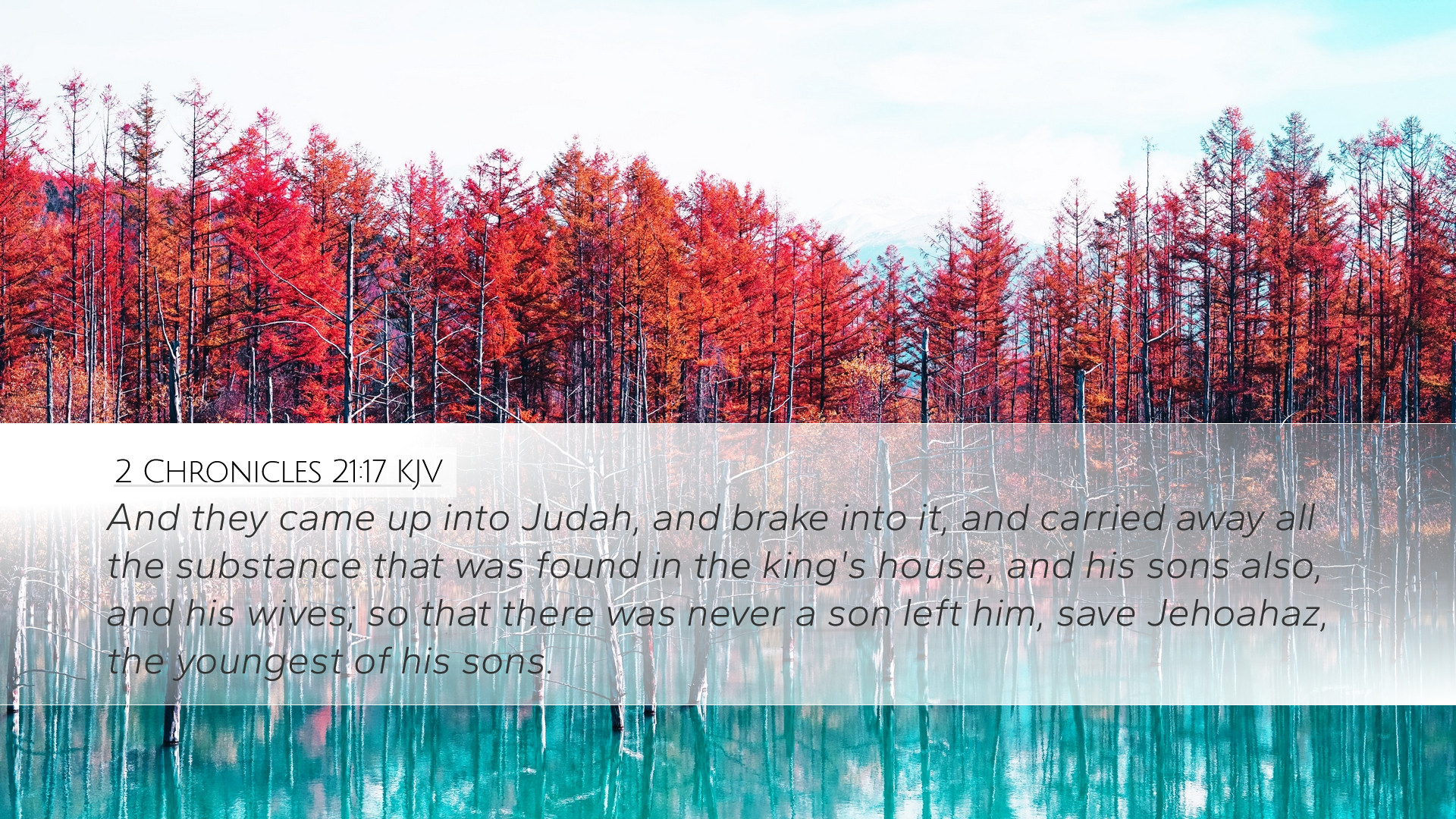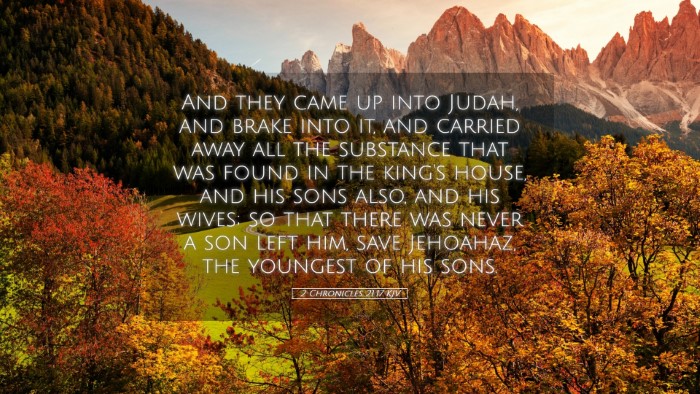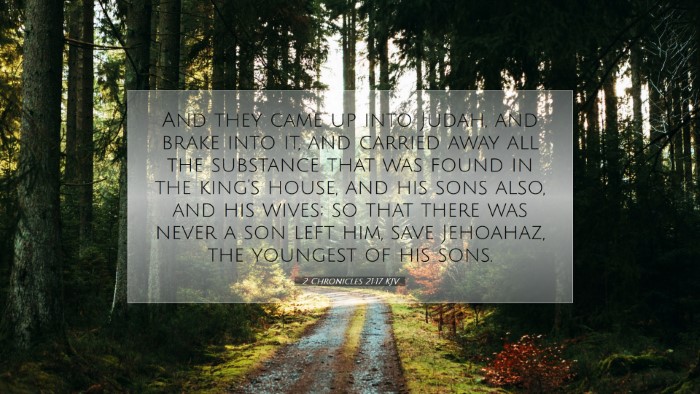Commentary on 2 Chronicles 21:17
Verse: "And they came up into Judah, and brake down the wall of Jerusalem, and took away the captives, and spoiled the land." (2 Chronicles 21:17)
Historical Context
The Book of 2 Chronicles serves as a historical narrative of the kings of Judah, providing insights into their reigns, spiritual conditions, and the covenant relationship with God. This particular verse is situated during the reign of King Jehoram, who ruled over Judah from around 853 to 841 B.C. Jehoram's reign was characterized by a significant departure from the ways of the Lord, influenced heavily by his marriage to Athaliah, the daughter of Ahab and Jezebel, and often reflected the tumultuous political climate of the region.
Paul's and Barnes' Insights
In the commentaries by Albert Barnes and Matthew Henry, this verse elucidates the consequences of Jehoram's idolatrous practices and departure from Yahweh. Barnes notes that God allowed these calamities to befall Judah as divine punishment for the nation's sins, specifically noting how Jehoram's actions led to the rebellion of the neighboring Seir and Edom.
Henry writes about the moral decline during Jehoram's reign, marking it as a pivotal moment where Judah's disobedience led to open conflict and eventual defeat. The destruction of the wall of Jerusalem symbolizes not just a physical breach but a spiritual one, reflecting how sin weakens the protective barriers set by God.
Theological Implications
The theological undertone of this passage extends beyond the historical events. It serves as a profound reminder to those in leadership and the larger community about the consequences of forsaking the ways of God. Jehoram's initial success gave way to his tragic downfall, reflecting the divine principle that disobedience leads to destruction.
Divine Retribution
As emphasized by Adam Clarke, this scenario showcases God's sovereignty in administering justice. The circumstances of Judah's defeat echo the biblical principle found throughout Scripture that rebellion against God invites calamity. Clarke elaborates on this theme, stressing that the Lord can utilize external forces to enact His judgments.
The Role of Leadership
Leadership in Israel was deeply connected to the nation's fidelity to God. The actions of Jehoram served to illustrate how a leader's choices impact not only their personal fate but the fate of the entire community. This calls to attention the biblical injunction for leaders to guide in righteousness and be stewards of God's covenant (Proverbs 29:2).
Practical Applications
- The Consequences of Sin: This passage serves as a warning to both leaders and congregants about the dangers of straying from God's commandments.
- The Importance of Upholding Godly Standards: In a world where moral boundaries are often blurred, maintaining a robust standard based on Scripture is essential to foster spiritual health.
- The Effects of Poor Leadership: A call to assess and choose leaders wisely, ensuring they are aligned with God's principles for the benefit of the community.
Conclusion
The account of 2 Chronicles 21:17 encapsulates the tragic consequences of a nation's sin under the leadership of Jehoram. The insights drawn from the public domain commentaries of Matthew Henry, Albert Barnes, and Adam Clarke serve to illuminate the importance of faithfulness to God amidst adversities. For pastors, students, theologians, and scholars, this verse is a profound reminder of God's justice and the significant impact of leadership on a community's spiritual well-being. There lies an urging for vigilance, maintaining a steadfast commitment to the teachings of Scripture as we navigate contemporary challenges.


